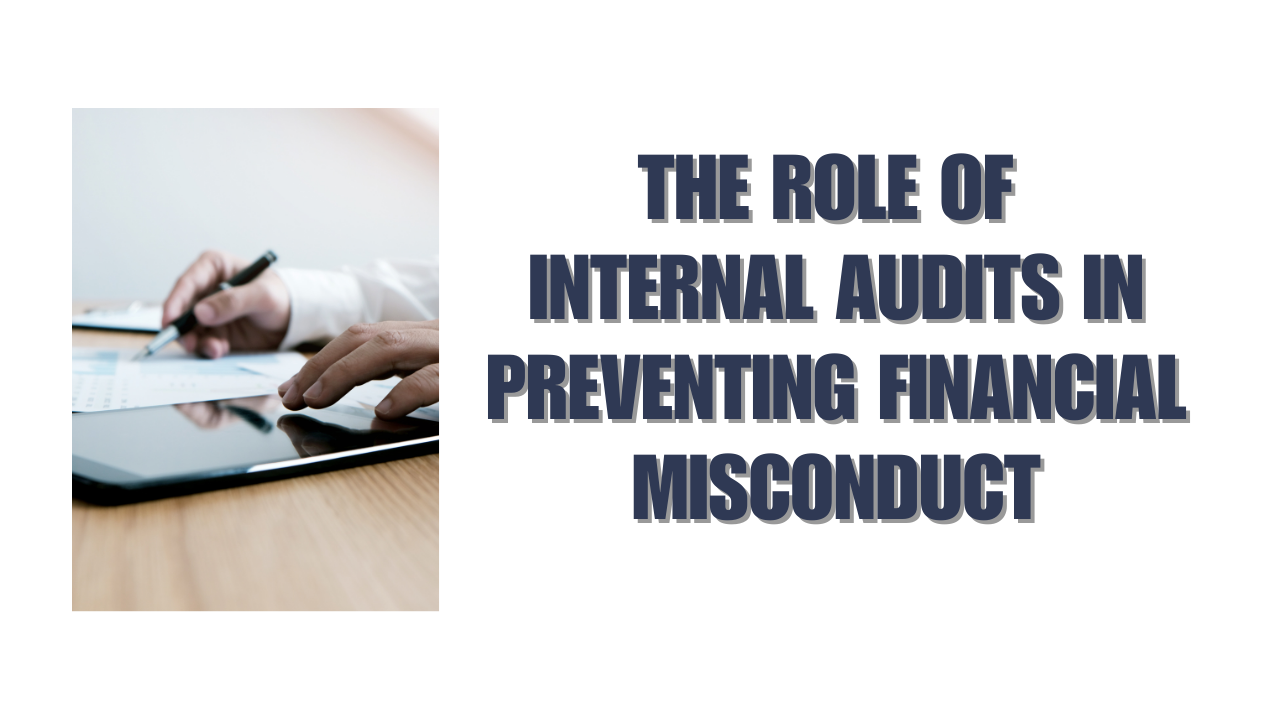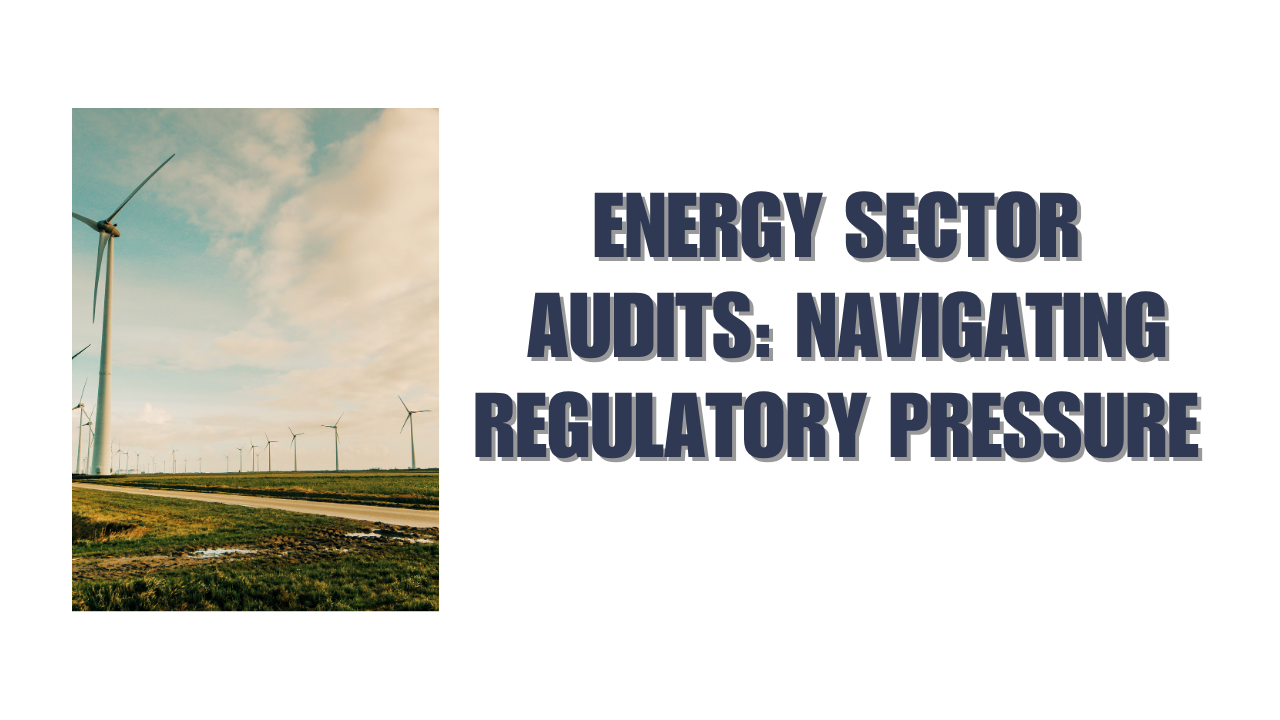Financial misconduct is one of the most pressing risks businesses face today. Whether it takes the form of fraudulent reporting, misuse of company funds, or misrepresentation of transactions, the fallout can be severe-eroded investor trust, reputational damage, regulatory penalties, and in extreme cases, business collapse.
This is where internal audits become a powerful safeguard. Far beyond being just a compliance exercise, they provide a proactive mechanism to detect risks, enforce accountability, and strengthen the ethical backbone of an organization. For small and large businesses alike, understanding how internal audits prevent financial misconduct is critical for sustainable growth.
Why Financial Misconduct Remains a Persistent Risk
Despite advanced accounting systems and regulatory oversight, misconduct continues to surface across industries. Some of the world’s biggest corporate scandals-such as Enron, WorldCom, or more recent global fraud cases-underscore a recurring theme: weak internal controls and oversight failures.
Even in smaller companies, financial misconduct doesn’t always come in the form of billion-dollar fraud. It could be unauthorized expense reimbursements, unrecorded liabilities, or deliberate manipulation of revenue figures to secure loans or impress investors.
The challenge lies in the fact that misconduct often begins small, concealed within routine operations, before spiraling into significant risks. Internal audits act as the early warning system that can detect irregularities before they escalate.
The Value Internal Audits Bring to Fraud Prevention
At their core, internal audits are independent evaluations of processes, records, and controls. But their role extends much further in addressing misconduct:
1. Strengthening Internal Controls
Internal audits examine whether systems like segregation of duties, approval hierarchies, and access restrictions are functioning as intended. Weak or poorly enforced controls often create openings for misconduct. Regular testing and recommendations ensure these gaps are identified and closed promptly.
2. Ensuring Transparency in Financial Reporting
Accurate financial reporting is the backbone of investor and stakeholder trust. Internal audits verify the integrity of financial statements by checking whether entries are recorded accurately, documentation is complete, and reporting follows accounting standards. This reduces opportunities for manipulation.
3. Detecting Irregular Patterns Early
Through continuous monitoring, internal audits can flag unusual transactions-such as duplicate vendor payments, excessive cash withdrawals, or revenue figures that don’t align with industry benchmarks. Spotting such anomalies helps organizations act before small issues escalate into misconduct.
4. Promoting a Culture of Accountability
Employees are less likely to engage in misconduct if they know controls are being reviewed regularly. The presence of internal audits creates a culture where ethical practices are prioritized and deviations are more easily noticed.
5. Protecting Reputation and Market Confidence
In today’s corporate environment, trust is as valuable as capital. Companies that demonstrate strong internal governance through robust audits are better positioned to maintain credibility with investors, regulators, and clients.
Best Practices for Leveraging Internal Audits Against Misconduct
To be effective, internal audits must go beyond checklists. Businesses should view them as dynamic tools that evolve with organizational needs and regulatory landscapes. Here are some best practices:
1. Adopt a Risk-Based Audit Approach
Instead of applying the same scrutiny to all processes, risk-based audits focus resources on areas most vulnerable to misconduct-such as procurement, cash handling, or revenue recognition. This ensures maximum impact while reducing wasted effort.
2. Incorporate Data Analytics
Modern internal audits are not limited to sampling a handful of transactions. With data analytics, entire datasets can be reviewed for anomalies. For instance, continuous monitoring tools can scan for duplicate payments or unusual vendor relationships in real time.
3. Maintain Auditor Independence
Internal auditors must be independent from the operations they evaluate. Reporting directly to the board or audit committee enhances credibility and ensures findings are acted upon without internal bias.
4. Regular Training and Awareness Programs
Audits should be coupled with employee training on ethical practices and fraud awareness. When employees understand what constitutes misconduct and how it’s monitored, they are more likely to comply with policies.
5. Timely Follow-Up on Audit Findings
Detecting misconduct risks is only valuable if corrective action follows. A structured follow-up mechanism ensures recommendations are implemented and accountability is maintained.
Case Examples: Where Internal Audits Make the Difference
- Retail Industry: A mid-sized retail chain discovered discrepancies in vendor payments through internal audits. Data analysis revealed that a senior manager had been routing payments to a related-party vendor. The fraud was intercepted early, saving significant losses.
- Manufacturing Sector: In a global manufacturing firm, internal audits flagged unusual raw material procurement costs. Further investigation uncovered collusion between procurement staff and suppliers. By tightening approval workflows, the company prevented ongoing misconduct.
- Financial Services: A regional bank leveraged internal audits to detect unapproved loan disbursements. Regular audits of loan files uncovered falsified borrower records, prompting a broader review that safeguarded regulatory compliance.
These cases highlight how internal audits do more than protect balance sheets-they preserve trust and business continuity.
Preparing Your Business for Effective Internal Audits
To get the full benefit of internal audits in preventing misconduct, businesses need structured preparation:
- Establish Clear Audit Objectives: Define whether the focus is on compliance, fraud detection, or process efficiency.
- Create a Transparent Reporting Framework: Ensure auditors have direct communication with senior management or the board.
- Leverage Technology: Use automated tools to analyze large datasets and detect anomalies that manual reviews might miss.
- Encourage Whistleblowing Mechanisms: Combine audits with safe reporting channels for employees to highlight suspicious activity.
By embedding these elements into their audit processes, businesses create an ecosystem where misconduct is increasingly difficult to carry out.
Why Internal Audits Are a Strategic Imperative
For many companies, financial misconduct is not a question of “if” but “when.” The cost of ignoring audit functions far outweighs the investment in strengthening them. Regulators are also imposing stricter expectations on corporate governance worldwide, making internal audits a strategic requirement.
Businesses that prioritize robust audit practices send a clear message: transparency, integrity,
and accountability is non-negotiable. This positioning strengthens stakeholder trust and builds long-term resilience.
Conclusion
Financial misconduct can undermine years of hard work in an instant. Internal audits act as a frontline defense, ensuring systems are strong, irregularities are detected early, and accountability is enforced. From protecting reputation to aligning with regulations, their value extends far beyond compliance checklists.
At Aurora Financials, we help organizations implement structured, risk-focused audits that prevent misconduct, support growth and long-term sustainability. When businesses treat internal audits as strategic assets, they don’t just avoid risks – they gain a competitive edge in trust and performance.






